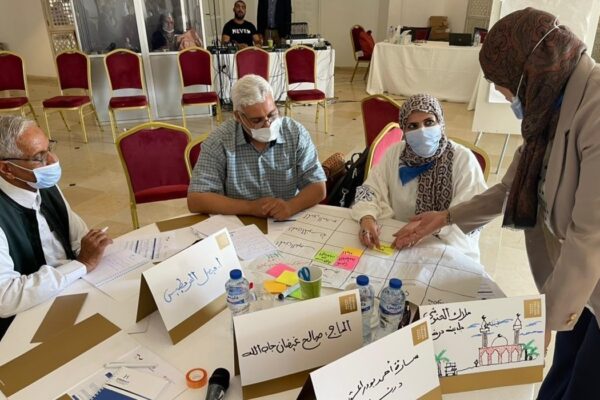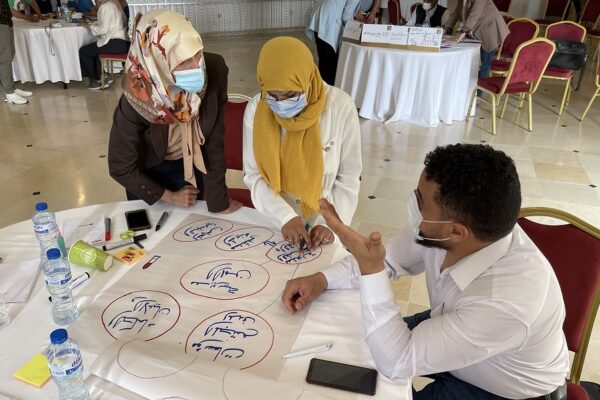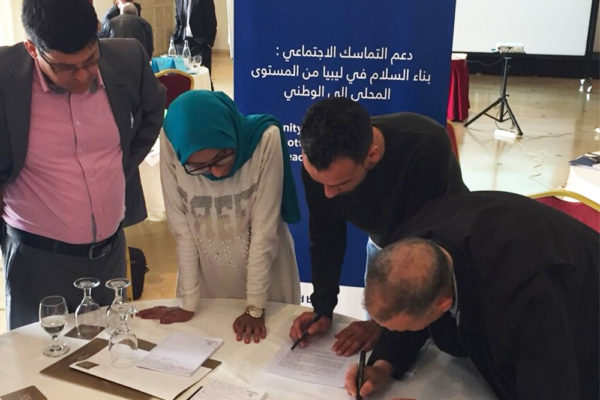The Libyan national political and reconciliation processes still fail to address a decade of political unrest and respond to the needs of people. The protracted conflict and over a decade of unresolved grievances continue to negatively affect individuals’ mental wellbeing. Mental health is not prioritized at institutional level, and heavily stigmatized at societal level, preventing people from accessing the needed support. Interpeace has launched a pilot project to understand community-level needs and how they are linked to reconciliation in Libya. Information-driven, cross-sectoral consultations are ongoing to explore priorities for reconciliation, including those related to mental wellbeing at the community-level, identifying potential common ground, while understanding the nuanced differences across communities. These consultations on community priorities and recommendations for reconciliation will be carried out on a national scale, and include communities in East, West and South of Libya. The project seeks to feed the local priorities identified into national reconciliation processes.
To respond to short-term reconciliation needs, the project mobilised the network of Change Agents established in previous phases of Interpeace’s engagement in Libya, to organize and facilitate dialogue sessions to mitigate emerging tensions. These ongoing dialogue sessions are conducted primarily in the South of Libya, in the localities of al Kufra, Brak al Shati, Ubari and Ghat.



